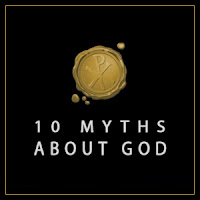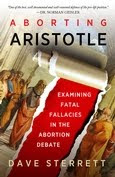 Everyone seems to be talking about atheism. The so-called “New Atheists” are out and proud. Their books are in every bookstore, waiting to perpetuate ideas about religion: that it is evil and causes violence, that its adherents are positively irrational or even delusional, and more. Dressed to impress, atheism is sporting “new clothes,” and David Glass, in his Atheism’s New Clothes, seeks to expose them. Glass explores the primary works of the “New Atheism”: Dennett’s Breaking the Spell, Hitchens’ God is Not Great, Harris’ The End of Faith, and Dawkins’ The God Delusion.
Everyone seems to be talking about atheism. The so-called “New Atheists” are out and proud. Their books are in every bookstore, waiting to perpetuate ideas about religion: that it is evil and causes violence, that its adherents are positively irrational or even delusional, and more. Dressed to impress, atheism is sporting “new clothes,” and David Glass, in his Atheism’s New Clothes, seeks to expose them. Glass explores the primary works of the “New Atheism”: Dennett’s Breaking the Spell, Hitchens’ God is Not Great, Harris’ The End of Faith, and Dawkins’ The God Delusion.Glass starts Atheism’s New Clothes by outlining the claims of the new atheism. One problem with this movement is that it rejects theistic belief simply because it is, according to them, simply obvious that theism is false and so they do not bother to interact on a scholarly level with theistic discussions.[1] In particular, the new atheists define faith in a way which is most helpful to their own case and refuse to interact with theologians on the topic. Harris goes so far as to argue that they can ignore what theologians say because they are allegedly irrelevant to the faith of the faithful.[2] However, Harris’ argument is based upon reading Hebrews 11 in “the right way,” which is of course his own reading that is not based upon the Greek or even exegesis of any sort.[3] Glass counters the contentions of the New Atheists’ by exploring a number of Christian responses to faith throughout history.[4] He notes that the consensus is that “within Christianity it is entirely appropriate to provide arguments and evidence for the existence of God and the truth of Christianity… note that the New Atheists fail to engage with any [view of faith outlined by Glass] or any other well-thought out view on the subject.”[5]




































